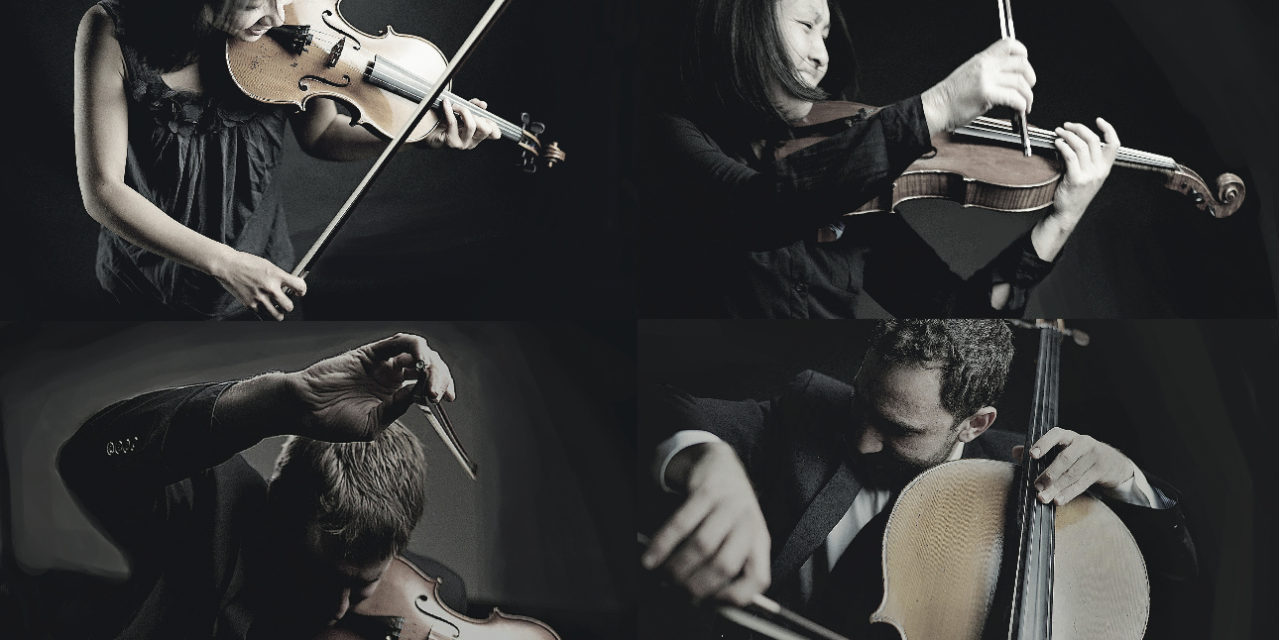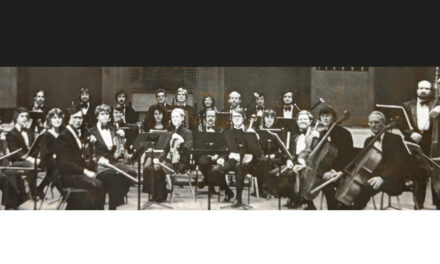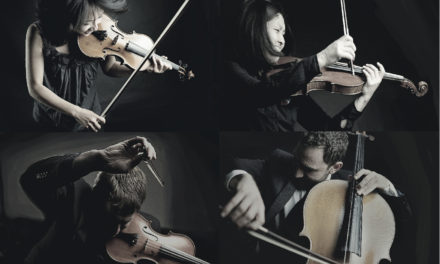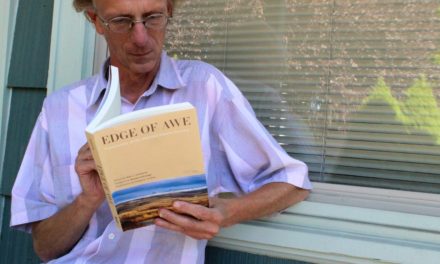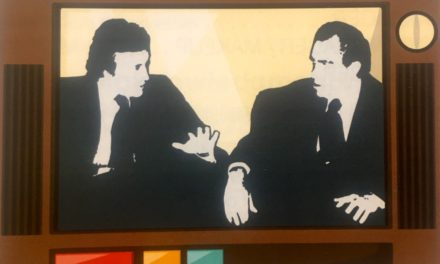(Above: The Delgani String Quartet, left to right, Wyatt True, Jannie Wei, Kimberlee Uwate and Eric Alterman)
By Daniel Buckwalter
I have had the privilege of seeing the eyes of the elderly.
Their bodies are often still, but their eyes race backwards uninterrupted, to “home.” It always is a private journey. The pictures are their own, with no words.
It also is a notable journey. I can tell because those eyes often well with tears.
I don’t know if Tomas Svoboda, the brilliant Portland-based composer of Czech descent, has these moments. I do know that he turned 80 this past Friday and has had mobility issues since a stroke in 2012.
I also know that the prolific Svoboda (more than 200 works composed and more than 50 works recorded) was given the gift of his music as a birthday gift this weekend, a tribute courtesy of the Eugene-based Delgani String Quartet.
Delgani played Friday evening at Tsunami Books in Eugene, then for a small gathering in Portland on Saturday, including members of the Svoboda family (wife Jana, son Martin, and daughter Lenka). It was unclear Friday whether Tomas Svoboda would make it to Saturday’s performance. I hope he did. His music on Friday sounded wonderful played against the steady rain pounding on Tsunami Books’ roof.
Delgani (Jannie Wei, Wyatt True, Kimberlee Uwate and Eric Alterman) played three of Svoboda’s string quartets, Nos. 10, 6 and 12. Each had the sensation, I thought, of an elderly man returning to the memories of “home.”
The first piece, String Quartet No. 10, was inspired by a dream Svoboda had about his homeland and its native folk music. Slavic folk elements are a staple the composer has often featured, and this piece had its playful and affirmative aspects.
It contrasted sharply with the second piece, String Quartet No. 6.
The Czech Republic, as it has been called since 1993, has seen more than its share of turmoil. As Czechoslovakia, as it was known from 1918 to 1993, it saw the horrors of advancing Germans in World War II. The Svoboda family (Tomas’ father, Antonin, was a mathematics professor and accomplished pianist) escaped at the start of the war and emigrated to Boston.
After the war, the Svoboda family returned to their homeland, but soon came the crushing realization that the old Soviet Union would have a stranglehold on a small nation that too often would not have self-determination.
This time, the Svoboda family left again in 1964 for the United States and didn’t look back. String Quartet No. 6 has a violent, militaristic insistence to it, especially in the second of the three movements. I could feel the tension, sense the chaos and even hear the tanks in Delgani’s performance.
String Quartet No. 12 was the final selection of the Svoboda tribute. Subtitled “Post Scriptum,” No. 12, as Delgani noted in its program, “is a work of deep feeling in which all human experience is accepted and transformed into tenderness. Great joy and great pain are present here, beyond optimism and pessimism.”
That sounds like childhood.
It was nice to receive this brief view into Tomas Svoboda’s “home.”

